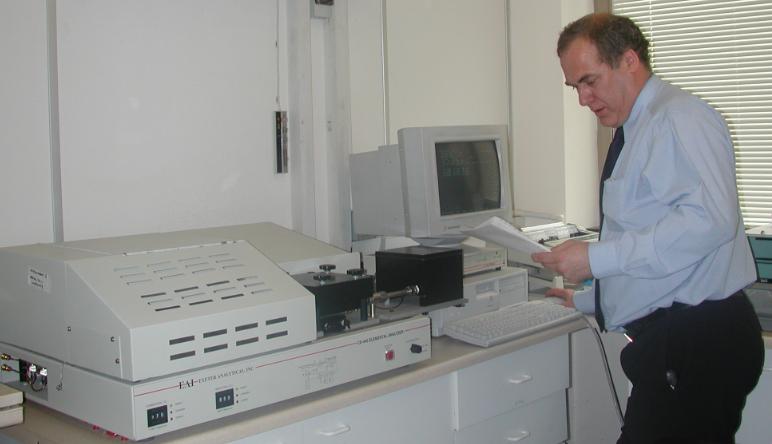Members Login

Channels
Special Offers & Promotions
Determination of CHN content of soil and plant samples.
 New technical data is available from Exeter Analytical that demonstrates the utility of their Model 440 Microanalyser for precise determination of the percentage Carbon (C), Hydrogen (H) and Nitrogen (N) in heterogeneous soil, plant and insect samples.
New technical data is available from Exeter Analytical that demonstrates the utility of their Model 440 Microanalyser for precise determination of the percentage Carbon (C), Hydrogen (H) and Nitrogen (N) in heterogeneous soil, plant and insect samples.
Traditional methodologies for determining CHN content of soil, plant and insect samples typically use macro-CHN or Kjehldahl Nitrogen analysis. While both these techniques are proven to generate useful data, both have drawbacks. Macro-CHN analysers are relatively expensive to purchase and run compared to micro-CHN systems and Kjehldahl requires use of highly corrosive and toxic chemicals. Using an Exeter Analytical Model 440 SCRI, Scotland's leading centre for research on crops, (www.scri.ac.uk) has accurately and precisely determined the CHN content of a wide range of soil, plant and insect materials using samples sizes of typically 2 - 20mg.
Gill Banks of SCRI commented 'With our plant and soil materials the excellent detector response linearity of the Model 440 has proven to be very important as composition can vary within a batch of samples. To cope with our often slowly combusting samples the Model 440 usefully offers provision for flexible combustion times and oxygen flows. Using the combustion optimisation software has enabled us to test a sample under various conditions in a single run to identify the optimum analytical conditions'.
Ms Banks added 'As soil, plant and insect samples often have high levels of inorganics - combustion generates large sample residues. Using a horizontal sample injection system our Exeter Analytical Model 440 automatically removes sample residue after each analysis thereby avoiding memory effects, gas flow problems and considerably extending the number of samples we can run between changing combustion tubes. Beneficially removing the residues also eliminates problems associated with accelerated degradation of the quartz combustion tubes due to levels of sodium often found in soil and plant samples'.
Designed to give accurate, reliable results, over the widest range of sample types presented for analysis the Model 440 CHN microanalyser is proven to deliver unmatched operating accuracy and precision. Low gas and reagent consumption combined with higher reduction tube life allows the Model 440 to deliver the lowest operating costs of any CHN elemental analyser available. The Model 440 is a fully automated analyser. Intuitive Windows based operating software reduces human errors through incorporation of extensive automation, comprehensive customer help and diagnostic facilities.
As a company dedicated to elemental microanalysis, Exeter Analytical's nearly 30 years of involvement with instruments, consumables and supplies has allowed them to better understand the whole problem facing microanalysts. As a consequence whether you are a regular or an occasional purchaser - experienced and knowledgeable staff are always available to provide free informed advice.
SCRI is one of Europe's leading institutes for research on plants and their interactions with the environment, particularly in managed ecosystems. SCRI's internationally recognised research focuses on processes that regulate the growth of plants and their responses to pests, pathogens and the environment. By understanding plants' responses to pests and diseases and how they react to the soil, air and water around them, environmentally friendly and sustainable methods of protecting crops from the ravages of pests, diseases and weeds are developed.
For further information please contact Exeter Analytical on tel. +44-2476-323223 (+1-978-251-1411 in North America) or email info@exeteranalytical.co.uk
Media Partners


